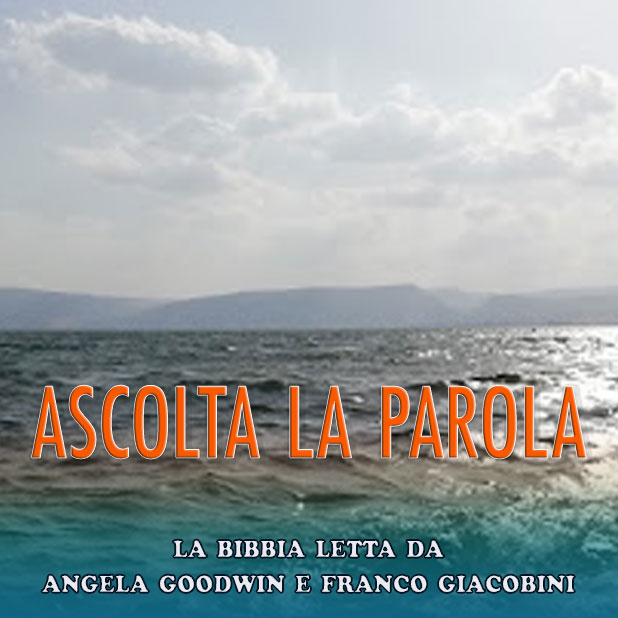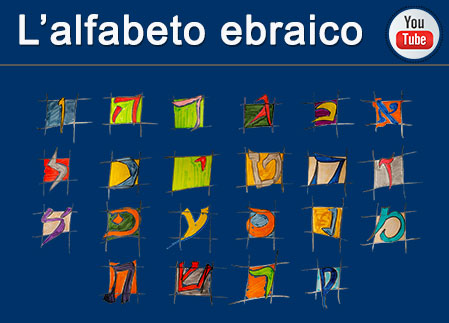Bishops' Committee on Ecumenical and Interreligious Affairs, N.C.C.B. National Council of Synagogues
Stati Uniti d'America 20/11/2000
As Catholic and Jewish religious leaders, we wish to express our concern over environmental health hazards adversely affecting the health of children. Children are especially vulnerable to their environment and deserve special concern from their society. They are, we believe, "a gift from the Lord; the fruit of the womb is a reward" (Psalm 127:3). The rabbis of the Talmud centuries ago interpreted the biblical words, "blessed is the one who does righteousness at all times" (Psalm 106:3), as referring to one who gives proper attention to the welfare of their children when they are young (Ketuboth 50a), making the raising and protection of children of paramount importance for the religious community. Jews and Christians infused with the spirit of the Psalms view nature as a living testimony to a living God, as the Talmud states: "One who goes out in the spring and views the trees in bloom must recite 'blessed is God who left nothing lacking in God's world, and created beautiful trees for humanity to glory in'" (Berakhot 43a). [See Jonathan Helfand, "Consider the Work of God: Jewish Sources for Conservation Ethics", in Daniel Polish and Eugene Fisher, editors, Liturgical Foundations of Social Policy in the Catholic and Jewish Traditions (University of Notre Dame Press, 1983) 134-148.]With the praise of God comes moral responsibility, as an ancient rabbinic tale teaches: "When the Holy One, Blessed be He, created Adam, He took him to survey all the trees of the Garden of Eden and said to him: 'See how beautiful and superior are my works and all that I created for you. Take heed not to corrupt and destroy my world, for if you corrupt it, there is none who can repair it after you'" (Koheleth Rabbah). Decisions about how we use the environment, and about the environmental health risks to which we expose our children, have a distinct moral dimension for the Church as well. Pope John Paul II has strongly stated that the "state has the responsibility of ensuring that its citizens are not exposed to dangerous pollutants or toxic wastes. The right to a safe environment [italics in original] is ever more insistently presented today as a right" [John Paul II, "The Ecological Crisis: A Common Responsibility," World Day of Peace Message, January 1, 1990, no. 9].
While our country has made significant progress in reducing air pollution and providing clean water over the last several decades, further efforts are needed to ensure safety. This is particularly true in the areas of lead and pesticide poisoning which can lead to damage to the nervous system and to immunity, and for air pollution which can lead to asthma and other breathing problems. While all children are at some risk from exposure, we express a special concern for children from low income families, who share a disproportionate risk and burden from environmental hazards. We recognize that children are not "little adults". Children have different patterns of exposure to environmental contaminants and also respond differently to them than adults. Additionally, children's normal behavior puts them at increased risk for exposure to toxic substances that may cause debilitating or life threatening health problems. Children, for example, tend to be outdoors more than adults and consequently have greater exposure to pesticides or air pollutants. Infants and toddlers have more exposure to substances in floors, carpeting, and soil. The ability of children's bodies to cope with harmful substances is also significantly less than that of adults. Young children breathe more rapidly and inhale more air in proportion to their body weight than do adults. They have higher metabolic rates, drink more fluid, and consume more calories for their body weight. If the air children breathe or the food they consume contains toxic substances, they will receive a larger dose than would adults. Further, because their metabolic systems are not yet mature, they have less ability to detoxify and excrete harmful substances than do adults.
As leaders in the Jewish and Catholic communities, we strongly support efforts to protect the most vulnerable among us, who certainly include the children of our nation. Because of our common concern for and desire to protect our children, we encourage our Jewish and Catholic people at the local and national level to work together to help make our environment safe for children. We urge that this interfaith endeavor will lend special assistance to poorer communities who may not have the resources to address these concerns adequately. We pray together that God Who created this bountiful and beautiful world and Who gives and sustains our lives will enable us and others of good will to provide a safe physical environment for all children.
Joint Social Action Recommendations
Create a coalition of key individuals and groups in your community to assist in assessing its "environmental health." Potential members include pediatricians, nurses, health department officials, child advocacy groups, PTAs, and environmental, youth, civil, business, academic and religious groups.
Educate community and school leaders about children's special vulnerability to toxins, and families about using fewer toxins in their homes, yards and neighborhoods.
Support "right to know" laws to enable families, schools and communities to learn about their children's exposure to toxic chemicals and products.
Work with existing community groups who are environmentally concerned. Map your community's known or potential hazards (e.g. dump sites, incinerators, superfund sites, major industry). Check the Toxic Release Inventory (TRA) data available to the public. Work with local industry and government to reduce emissions, clean up sites, etc.
Religious educators can communicate the ethical and moral dimensions of this issue from the perspective of Catholic and Jewish social teaching.
Advocate the development of a national warning system for environmental health risks. While the federal Centers for Disease Control and Prevention (CDC) has monitored lead levels in human blood over the years, to good effect, it does not monitor for other dangerous pollutants.
Selected Resources for Information on Children's Environmental Health
Federal Agency Websites
Center for Disease Control and Prevention: www.cdc.govncehncehhome.htm
Agency for Toxic Substances and Disease Registry: www.atsdr.cdc.govchild
Environmental Protection Agency, Children's Health Protection: www.epa.gov/children/index.html
National Institute of Environmental Health Sciences: www.niehs.nih.gov
Non-Governmental Organizations
Alliance to End Childhood Lead Poisoning: www.aeclp.org
American Academy of Pediatrics: www.aap.org
American College of Occupational and Environmental Medicine: www.acoem.org
Children's Environmental Health Network: www.cehn.org
Physicians for Social Responsibility: www.psr.org
U.S. Catholic Conference Office of Domestic Social Development: www.nccbuscc.org/sdwp/ejp
Religious Action Center of Reform Judaism: www.rac.org
National Religious Partnership for the Environment: www.nrpe.org
Coalition on the Environment and Jewish Life: www.coejl.org
Catholic Signatories:
(Chair) Cardinal William Keeler, Archbishop of Baltimore and Episcopal Moderator for Catholic-Jewish Relations of the National Conference of Catholic Bishops
Bishop Basil Losten, Ukrainian Catholic Diocese of Stamford
Bishop John J. Nevins, Diocese of Venice, Florida
Auxiliary Bishop John Nienstedt, Archdiocese of Detroit
Msgr. Denis Madden, Catholic Near East Welfare Association
Rev. James Loughran, SA, Archdiocese of New York
Rev. Drew Christiansen, SJ, Ms. Nancy Wisdo
Mr. Gerard Powes, United States Catholic Conference
Dr. Eugene Fisher, National Conference of Catholic Bishops.
Jewish Signatories:
(Co-Chair) Rabbi Michael A. Signer, Union of American Hebrew Congregations
(Co-Chair) Rabbi Joel Zaiman, Rabbinical Assembly of Conservative Judaism
Rabbi Paul Menitoff, Central Conference of Reformed Rabbis
Rabbi Joel Meyers, Rabbinical Assembly of Conservative Judaism
Rabbi Ronald Kronish, Interreligious Coordinating Committee in Israel, Jerusalem
Dr. Victor Goldbloom, Union of American Hebrew Congregations (UAHC)
Rabbi David Saperstein, Religious Action Center (UAHC)
Rabbi David Davidson, UAHC/Joint Commission
Rabbi Sari Laufer, UAHC/Joint Commission
Ms. Judith Hertz, UAHC/Joint Commission
Ms. Sarrae Crane, United Synagogue of Conservative Judaism
Rabbi Jeffrey Wohlberg, Rabbinical Assembly of Conservative Judaism
Rabbi Jonathan Waxman, Rabbinical Assembly of Conservative Judaism
Rabbi A. Nathan Abamovitz, Rabbinical Assembly of Conservative Judaism
Mr. Mark Pelavin, Religious Action Center (UAHC).
57465 visualizzazioni.
Inserito 01/01/1970
Relazioni Ebraico-Cristiane
Ultime novità nel sito
- 19/04/2020: Articolo - L’enigma della Maddalena
- 23/02/2020: Articolo - Il locus amoenus nelle catacombe ebraiche e cristiane di Roma
- 16/02/2020: Articolo - Il profetismo nel Vicino Oriente antico
- 13/02/2020: Articolo - I Profeti della Cappella Sistina
- 09/02/2020: Articolo - Gerusalemme e la Terra Santa di Israele


